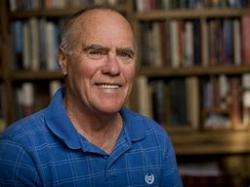There’s an important backstory to performances we watch and enjoy.
Jack Burke, Jr. began the last round of the 1956 Masters eight strokes down to Ken Venturi. He went on to win in regulation play, and his accomplishment that day still holds the record for Augusta. The great golfer recently died at the age of 100.
In his 2006 book, It’s Only a Game, co-authored by Guy Yocom, Burke tells of a member at Champions asking him to take a quick look at his swing, which Burke did, and then he offered the member a suggestion. As Burke walked away, the member said, “Thanks for the tip.” Burke, Jr. writes in his book
I don’t give tips, Burke replied. This isn’t Churchill Downs. It took me sixty years to acquire the knowledge necessary to offer that man a suggestion. Just because the advice comprises one sentence doesn’t mean it didn’t include a lot of thought.
His observation offers as much life wisdom as a room full of distinguished faculty might. While Burke’s subject was golf, he spoke for every skilled person.
When we watch someone skilled perform, the task will look effortless. Observing a carpenter cut and then placing any molding seems effortless, as does watching a chef prepare a meal or hearing a good homily on Sunday, which appears to take little or no effort. Watching runners like Matthew Boling or Paula Radcliffe may inspire you to don sweats and sneakers, but don’t expect to run at their level.
Years ago, a surgeon was putting elaborate crown molding in his home. He was doing well until he ran into a complex angle. He called a friend, a carpenter named J.D., who came to see if he could help. J.D. looked at the angle, asked for a piece of the wood, and left with it to walk to his van. Returning in a few minutes, he tacked the two pieces of molding in place and asked the surgeon, “That suit you?”
Ecstatic with the fit, the surgeon thanked J.D. and asked how much he owed him. “$75.00,” was the answer. As he counted the money, the surgeon said, “Gosh, it only took you a few minutes, J.D., to do the job. Don’t you think $75.00 is a bit high?” Taking the money, J. D. said, “Nope. I’m charging you $25.00 for doing the job but $50.00 for knowing how.”
Burke’s one-sentence comment was packed with thought built on experience, as was J.D.’s price. The same holds for the chef, the homilist, the runner, or any other skilled person doing what they do. Each possesses knowledge that comes from experience, which likely includes errors from which they have learned. Yet so often, we, the non-skilled observers, minimize the art of the skilled.
As a culture, we are prone to make heroes from athletes and pop artists. We are quick to place singers and ball players on pedestals. However, in so doing, are we seeing them for who they indeed are—hard workers who have spent hours alone dribbling a ball with their feet, learning how to counter-shoot a takes the reader takedown in a wrestling room, doing repeated flips on a gymnastics’ mat learning how to land exactly right, or writing and re-writing a homily until it is as perfect as it can be. We applaud the performance; sadly, we all too often ignore the labor.
The Hand of the Poet examines manuscripts in the Berg Collection in the New York City Public Library. The curator of the collection, Rodney Phillips, takes the reader through drafts of poems showing each poet at work on a particular poem. Bob Holman observes that the book demonstrates how “Truth and Beauty have been deconstructed to Sweat and Labor.”
You may never have a Jack Burke, Jr. give you his wisdom about your swing, race against Paula Radcliffe, or try to pin Kyle Snyder. But you will watch performances by pop stars or that approaching big game, enjoy a fine meal in a local restaurant, or even hear a good homily. When you do one or all of these, appreciate them for what they are—the mark of craft made possible by years of dedicated labor and sweat.
…and remember, if you want a tip, go to Churchill Downs.















Enjoyed the article about Jack Burke, 8 shots down, quite an accomplishment